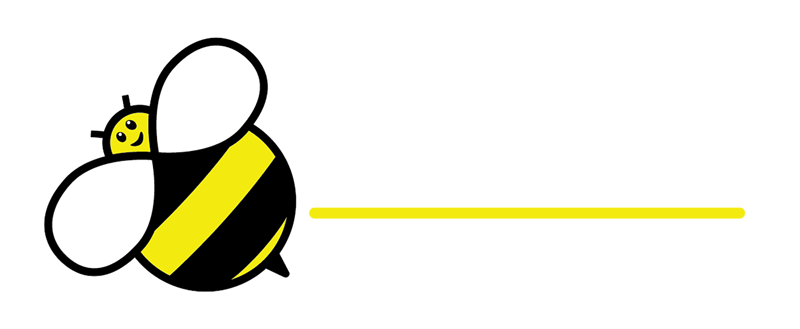Understanding the Role of Phlebotomists: Career Insights and Outlook
Phlebotomists play a critical role in the healthcare industry, specializing in the process of drawing blood for various medical purposes. As essential healthcare professionals, they ensure that accurate blood samples are collected for tests, transfusions, research, and donations. This blog post will delve into the details of the phlebotomy profession, including job outlook, salary, required education, and more, providing a comprehensive overview for those interested in pursuing a career in this field.
What Do Phlebotomists Do?
Phlebotomists are trained to draw blood from patients using sterile techniques and equipment. Their work is vital in ensuring that blood samples are collected safely and efficiently, which is essential for accurate medical testing. The responsibilities of phlebotomists include:
- Drawing Blood: Phlebotomists collect blood samples through venipuncture or capillary puncture, ensuring patient comfort and safety.
- Labeling Samples: After blood collection, they label samples correctly to maintain proper identification for testing.
- Preparing Samples: Phlebotomists may be responsible for preparing blood samples for laboratory analysis, including centrifuging and storing specimens appropriately.
- Maintaining Equipment: They ensure that all phlebotomy equipment is clean, properly maintained, and ready for use.


Quick Facts About Phlebotomists
Here’s a summary of key information about the phlebotomist profession based on 2023 data:
- Median Pay: $41,810 per year or $20.10 per hour.
- Typical Entry-Level Education: Postsecondary nondegree award (certificate).
- Work Experience: No prior experience is necessary.
- On-the-Job Training: Not typically required.
- Number of Jobs (2023): 141,200 positions.
- Job Outlook (2023-2033): Projected growth of 8% (faster than average).
- Employment Change (2023-2033): An increase of approximately 11,000 jobs.
Work Environment
Phlebotomists work in various healthcare settings, each with its unique environment and responsibilities. Common workplaces include:
- Hospitals: Phlebotomists play a crucial role in hospital labs, collecting samples from patients for urgent testing.
- Medical and Diagnostic Laboratories: In these settings, phlebotomists work closely with lab technicians to ensure samples are accurately processed.
- Blood Donation Centers: Phlebotomists are essential for collecting blood donations, often working during community blood drives.
- Doctors’ Offices: Many phlebotomists work in outpatient clinics, performing blood draws during routine check-ups or specific tests.
How to Become a Phlebotomist
Educational Requirements
To become a phlebotomist, candidates typically need to complete a postsecondary phlebotomy program, which offers training in blood collection techniques, safety protocols, and patient care. Some programs may require a high school diploma or equivalent, while others offer direct entry into training.
Certification
While certification is not always required, many employers prefer hiring certified phlebotomists. Obtaining certification can enhance job prospects and demonstrate a commitment to professionalism. Various organizations offer certification, including:
- American Society for Clinical Pathology (ASCP)
- National Phlebotomy Association (NPA)
- American Medical Technologists (AMT)
Skills Required
To succeed as a phlebotomist, individuals should possess certain skills, including:
- Attention to Detail: Precision is critical in blood collection and labeling.
- Communication Skills: Phlebotomists must communicate effectively with patients to alleviate fears and explain procedures.
- Technical Skills: Familiarity with medical equipment and procedures is essential.
- Compassion and Empathy: Understanding and addressing patient anxiety is important for providing quality care.
Salary and Benefits
As of May 2023, the median annual wage for phlebotomists was $41,810, translating to an hourly wage of approximately $20.10. Salary can vary based on factors such as location, experience, and the type of healthcare facility.
Benefits
In addition to salary, many phlebotomists receive benefits such as:
- Health insurance
- Paid time off
- Retirement plans
- Continuing education opportunities
Job Outlook
The job outlook for phlebotomists is promising, with an expected growth rate of 8% from 2023 to 2033, which is faster than the average for all occupations. This growth is attributed to an increasing demand for blood tests and medical services as the population ages and healthcare needs expand.
Employment Opportunities
Approximately 19,600 openings for phlebotomists are projected each year, primarily due to the need to replace workers who transition to other occupations or retire. This high turnover creates ample opportunities for new entrants into the field.
State and Area Data
Phlebotomists can find employment in various states and regions, each offering different wage scales and job availability. Exploring resources for employment and wages by state can provide valuable insights for those considering a career in phlebotomy. For specific resources in Houston, you can check Houston Vaccines.
Training Opportunities at Houston Vaccines
For those interested in becoming phlebotomists, Houston Vaccines offers comprehensive training programs that equip students with the skills and knowledge needed for this career. The available courses include:
- Phlebotomy Certification Course: A complete training program covering essential techniques in blood collection and patient care.
- Basic Life Support (BLS) Certification: Important for healthcare professionals, this course covers lifesaving techniques that may be required during blood collection procedures.
- Continuing Education for Healthcare Workers: Ongoing education programs to keep phlebotomists updated on the latest practices and protocols in the field.
For more information on available courses and registration, visit Houston Vaccines Courses.
Similar Occupations
Phlebotomists work alongside other healthcare professionals. Similar occupations include:
- Medical Assistants: Assist with patient care and administrative tasks.
- Laboratory Technicians: Perform tests on blood and other samples.
- Nurses: Provide patient care and support in various healthcare settings.
Additional Resources
To learn more about phlebotomy, prospective students and professionals can visit resources such as O*NET, which offers detailed information on job characteristics, requirements, and labor market data. For practical training and vaccination opportunities in Houston, visit Houston Vaccines.
Conclusion
Phlebotomy is a rewarding and vital career in the healthcare field, offering numerous job opportunities and the chance to make a difference in patients’ lives. With a positive job outlook and accessible entry points, it’s an appealing option for those interested in healthcare careers. If you’re considering a career as a phlebotomist, now is the perfect time to explore training programs and certification options to embark on this fulfilling path.


